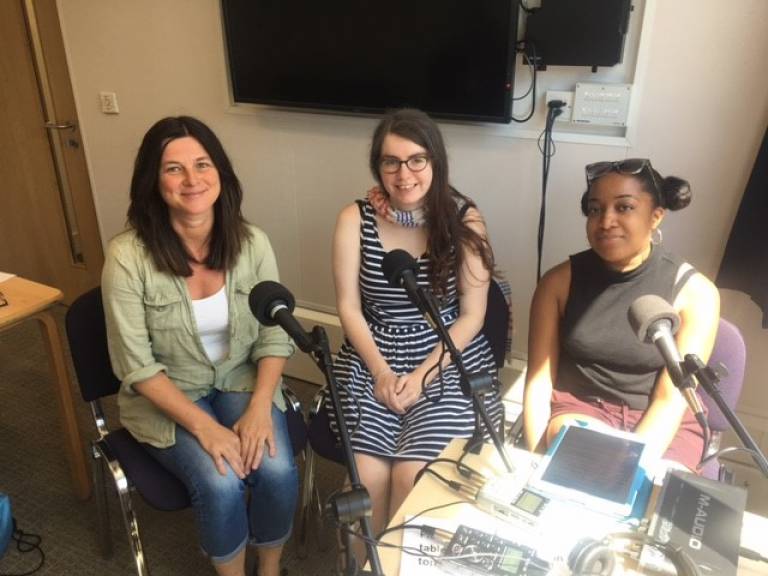Students shape their education by making Anthropology reading lists more diverse
24 October 2017
A step-change in the diversity of the reading lists of every compulsory module of undergraduate Anthropology has been brought about by students on the programme, after they questioned the predominance of traditional western and male scholars.

The students, led by Mahalia Changlee and Emily Garvin, have been working with academic staff to evaluate and improve the reading lists. The project, which was funded by UCL's Liberating the Curriculum, seeks to ensure a fair representation of black, queer, disabled and feminist thought in the reading lists. Through projects like this, and through ChangeMakers, UCL encourages students to get involved as partners in shaping and improving their education.
Diverse perspective
Speaking in a UCL podcast about the project, student Mahalia Changlee, who graduated this summer, said: 'I chose Anthropology because I wanted to interrogate history and politics from a diverse perspective, but this isn't what I found particularly in my first year, where the acknowledgement of colonialism and conquest in the curriculum was near non-existent. As a person of colour, this is very important to me.'
Emily Garvin, who also graduated in 2017, said during the podcast: 'We brought up the issue in the Staff Student Consultative Committee and we've had really great support from staff. One of the big benefits of having looked at all of the reading lists together is that we can identify not only where there are gaps in the taught content but also where they are not working as smoothly as they could. So we've been able to help ensure a richer more diverse experience of learning for students.'
Canvassed student opinion
Together with other undergraduates, Mahalia and Emily met with staff across the department to garner support for the project. They canvassed student opinion and gained full support from the BME sabbatical offer in the Students' Union.
Staff and students are working together to agree new content. Two research students were appointed as 'Diversity Representatives' to administer the database and update the core reading lists, including finding articles and papers, getting permissions and digitising content.
There are plans to run focus groups with students in this academic session to evaluate the new reading lists. The project also plans to produce a framework for benchmarking and improving reading list diversity that will help others start similar conversations.
Liberating the Curriculum, which funded the project, is a strand of the Connected Curriculum, UCL's framework for research-based education.
Dr Caroline Garaway, Head of Teaching in UCL Anthropology, said: 'The project has been led by students from the start. They have engaged in the critical evaluation of their own curricula, so the project fits directly into the Connected Curriculum with its emphasis on learning through research and enquiry. By working collaboratively with staff they have connected with researchers and become part of the academic community. By seeking diversity in anthropological thought they are making connections with others and out to the world.'
 Close
Close

